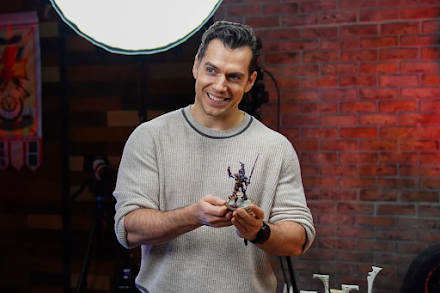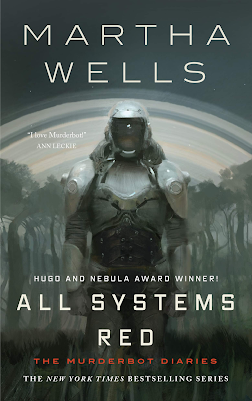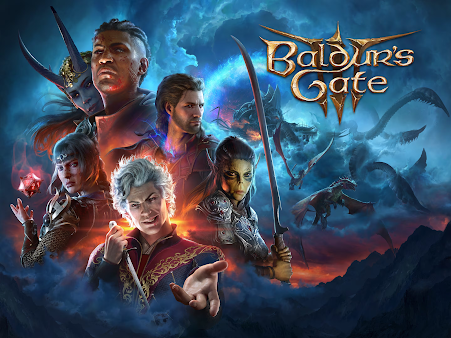An illithid spaceship crashes on the banks of the River Chionthar, far to the east of the great city of Baldur's Gate. Seven survivors stumble forth, former prisoners of the illithids, the much-feared mind-flayers. These seven individuals have been infected with mind-flayer tadpoles, which will slowly burrow into their brains and turn them into new illithids. But something is holding the tadpoles at bay. The companions learn that they may be able to escape their doom, if they can work out their differences, join forces and defeat the greatest threat to Faerûn and the Sword Coast to appear in generations.
Baldur's Gate III - now officially the Game of the Year™ - is a massive, sprawling, roleplaying game set on the
Dungeons & Dragons world of Toril, better known as the Forgotten Realms. It is the sequel to
Baldur's Gate and
Baldur's Gate II: Shadows of Amn, two of the greatest roleplaying games (and in fact video games full stop) of all time, but also notes that since it's almost a quarter of a century since the last game in the series game out, it requires zero previous knowledge of the series to enjoy. It arrives at a perfect moment, with the popularity of
Dungeons & Dragons and tabletop roleplaying games at an all-time high, and goodwill for developers Larian Studios still riding high from their previous two games in the
Divinity: Original Sin series.
It would be churlish to say anything other than Baldur's Gate III is an overwhelmingly impressive game. It's enormous, with a playthrough of the main story and most side-quests taking around 100 hours, but an exhausting playthrough to find every bit of loot, gold and lore taking easily half again as long. The game can be played solo or as a co-op online game. You can create a new character from scratch, play as one of the six existing "origin characters" (who otherwise become your major NPC party-members), or play the "Dark Urge" character, who has a murderous drive which ties more directly into the previous games in the series. Creating a new character, you can play as one of numerous species, classes and sub-classes, with a wide array of feats, abilities and combat moves to develop and employ. There's a lot of game here, but the game is forgiving enough that you can muddle through even with "suboptimal" builds, and it does a good job of teaching you what you need to do as it goes along.

I mean, she's not wrong.
Baldur's Gate III feels bizarrely and positively schizophrenic: the game has AAA+ production values, cutscenes, voice-acting, graphics, visual effects and polish (at least for the first half of the game) to shame the latest Call of Duty or Assassin's Creed mainstream title, but it's also deeply geeky. The turn-based combat and the need for tactical positioning, mastery of buffs and debuffs and knowledge of how Concentration-based spell effects work all feel better suited for hardcore indie titles aimed squarely at insiders and grognards. The game's most startling success is bridging these two audiences, creating a game with the richness and depth of many of the classic CRPG titles but the mainstream accessibility and appeal of the most polished AAA action games.
The game isn't truly an open-world title, instead being set across one very large map in each of the three acts, plus a couple of side-maps related to them. Each map will still take a while to simply explore, and are packed with puzzles, enemies, potential allies, caves, loot and mysteries. Many events pertain to your current situation but others are incidental side-quests. Each act has its own major storyline: Act I focuses on a conflict between a goblin army and a druid grove which is also hosting a large number of tiefling refugees from the nearby city of Elturel; Act II is set in the mist-shrouded lands around Moonrise Towers, where the Harpers are planning a strike to retake the fortress from the evil warlord who controls it; and Act III takes the party to Baldur's Gate itself, where dubious shifts in governance mask a foul conspiracy unfolding both above and below ground. It sometimes feels like the game could have been a trilogy made up of three ~30-hour games which would have still been incredibly rewarding, and getting them all in one title for one price is an insane act of generosity on Larian's part. For the record, Baldur's Gate III is substantially longer than all three Mass Effect games combined.

No, it's not that one.
The game's narrative is complex, with the struggle to overcome the mind-flayer tadpole munching on your cerebellum tied into the mystery of why it hasn't already succeeded. Trying to remove this threat leads you into some very strange places. But you are also one of seven characters in the same boat, and each one of your companions - Astarion, Gale, Karlach, Lae'zel, Shadowheart and Wyll - has their own immense amount of backstory and baggage to deal with. Astarion is a vampire spawn who yearns for vengeance against his abusive former master. Gale has a ticking magical time bomb inside him and emotional damage from a relationship with the Goddess of Magic. Karlach is infused with an Infernal Engine that grants her strength but is also slowly killing her. Lae'zel is a githyanki with a severe attitude problem who is trying to serve her people the best way she can. Shadowheart is a brittle worshipper of Shar, the Goddess of Shadows and Darkness, but also has a good heart that seems at odd with her calling. Wyll is a warlock tied to a dubious, demonic patron. Each one of these characters and stories is well-drawn and enacted, with outstanding voice acting. Many of the game's finest moments come from interactions with and between your companion characters, as you move from dysfunctional-at-best allies to more of a found family.
That's not going too far into the other characters you meet along the way, people whom you can turn into powerful allies by helping their cause, such as rescuing the druid Halsin from the goblin camp or saving the thieves' guild of Baldur's Gate from being usurped by a rival operation. Many of these storylines are also highly engaging.
Combat is tactically satisfying, but - and this is a relief - not quite as puzzle-focused as the Original Sin games. In those games, incredibly tough battles were really puzzles which could only be unlocked through the use of oils, traps and explosives. Baldur's Gate III still has many of those elements, but they are more optional and instead combat is more reliant on the tactics you yourself develop through experimentation. This is much more satisfying and enjoyable.
Given the game's immense scale, its epic scope, its strong storytelling, outstanding characterisation and immaculate presentation, this must be a clean sweep, surely? An immediate five-star classic?
"This guy seems trustworthy."
Not quite. Baldur's Gate III's incredible first impression is slowly soured by a number of problems (some solved by the large number of patches and hotfixes since the game's launch four months ago, some not). None of these are fatal, but combined they do remove some of the sheen from the game.
The first is that the game's launch was technically problematic. The first half of the game was almost flawless, but the second half saw gradually escalating crashes, graphical errors, quest triggers misfiring, occasional random deaths and massively tanking framerates (especially when reaching Baldur's Gate itself, one of the most detailed and densest fantasy cities ever depicted in a video game). Many of these were fixed, but some issues remain: wonky physics, occasionally vanishing items which you are trying to pick up and cutscenes abruptly ending as the game can't work out what scene to play next (cutscenes are dynamic and depend on, sometimes, hundreds of choices you have made through the game).

This leads into a second problem in that Baldur's Gate III bills itself as being fully reactive to your game choices, so if you want to surprise-attack a major antagonist halfway through his evil plan speech and yeet him into a lava pit, you certainly can try. The problem is that it's rather easy to trip the game up in this way: in Act I I snuck into the goblin fortress from a side-tunnel rather than infiltrating via the camp outside, and in Act II I stumbled across the Gauntlet of Shar before finding Moonrise Towers. So, twice, I did major parts of the game's storyline in the opposite order to the way the game expects. Twice, the game failed to adequately respond to this, with characters making reference to things I had not done and people I had not yet met, cutscenes not really making sense and major parts of the story being shut off to me without much forewarning or the ability to do anything about it.
The game can also be extremely odd in what it tells you to do, or is possible: at the end of Act I you are told you have to proceed either via a mountain pass or the Underdark to reach Moonrise Towers. But, in fact, you can simply do both. In fact, you really should do both, as major storyline events for your companion characters take place in both locations. Following the game's directions literally can simply cut you out of large amounts of content if you are not careful.

Another issue is caused by the game's structure. As you pursue your myriad quests, they start to draw to conclusions deep into Act III, and they then climax in rapid succession, which is what you'd expect. But this means that the game can wind up putting five very tough boss fights one-after-another in the latter part of Act III, which ended up being a bit too much and left the actual final battle of the game feeling a bit undercooked in comparison. The game hints at a better structure earlier one, when Shadowheart's story really climaxes in Act II but gives her a meaty epilogue early in Act III. Wyll's story can also be brought to an early conclusion in Act III. Spacing out the companion characters' stories more evenly would be a better idea (and it may be possible on a replay to approach things somewhat differently).
Baldur's Gate III also cannot help but suffer a little in comparison to its earlier forebears; its music is notably nowhere near as good (BG3's soundtrack perks up with the excellent faux-opera accompanying your confrontation with a very powerful enemy near the end of the game, but is mostly generic) and - utterly bafflingly - its UI is sometimes clunkier. Identifying weapons and items in your inventory can be fiddlier, and things that can smoothly be done in one click in
Baldur's Gate II now take two or three. BG2 has real-time combat that can be effectively made turn-based through the use of options, whilst BG3 only has turn-based combat, which sometimes kills the game's pacing when facing off against a bunch of dramatically weaker enemies whom you are absolutely going to rinse regardless.
Baldur's Gate III's rogue's gallery of enemies also feels a little flat: the most charismatic and intimidating enemy in the game is seen off in Act II and those left behind are tiresome second-stringers. None of Jon Irenicus' powerful gravitas or Sarevok's mad-dog energy here (well, very little of it). I'm also now a little bored of
big RPGs in which something weird is happening inside your head and is going to kill you unless you do the main quest (for a genre that utterly despises railroading, the video game versions of pen-and-paper RPGs are awfully fond of doing things that would risk a DM getting ostracised in real life).

The final criticism is also not so much of a bug but a feature for a lot of people: Baldur's Gate III is a lot and I found myself only really able to enjoy the game with my brain switched full on, paying maximum attention and in the zone. This is not a calm or gentle game to chill out to, like, say, Starfield. With its immense checklist of things to do and people to see and monsters to kill, BG3 occasionally risks feeling more like work than relaxation. Of course, for those who love number-crunching, story-tracking and optimising builds, this will be a huge appeal rather than a possible weakness.
Baldur's Gate III's weaknesses are not insignificant, especially cumulatively, but they ultimately cannot derail the game's immense achievements: mostly good writing, strong character work, intriguing combat, gorgeous graphics and best-in-class voice acting. Baldur's Gate III (****½) has rewritten expectations on how complex, challenging and layered a video game can be and still be a huge crossover smash hit, and it may be some considerable time before we see a game that has as much success.
The game is now available on PC, PlayStation 5 and, as of today, Xbox Series X and S.
























